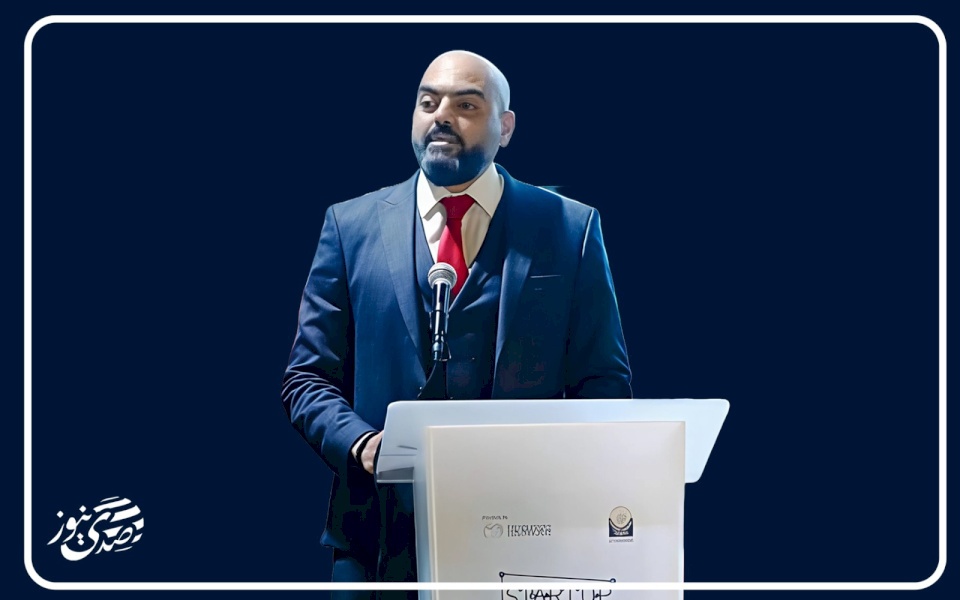
The Illusion of Reconstruction...
Today, Gaza is not just a wounded city; it is a mirror reflecting the world's failure in the exam of humanity, and our failure as Palestinians in the exam of unity. Its recent images broadcasted by Arab and global channels require no commentary or analysis; the scene alone is enough to encapsulate a century of pain. Destroyed towers, streets transformed into trenches, and bewildered faces as if they emerged from the ashes of legends. There, where children used to run to their schools, the ground has become a stage for rubble and remnants of memories.
After two years of a devastating war that consumed everything, the same question arises as always: Who will rebuild Gaza? But the deeper question – and perhaps the most painful – is: Who will rebuild the human being of Gaza? Who will restore those souls that lived through siege, destruction, and displacement, such that they now see life itself as a temporary exception?
Gaza has been exhausted not only by bombs but also by repeated promises. Donor conferences are held in luxurious capitals, reconstruction plans are drawn on paper, and statements of solidarity are written in ornate language... But when the cameras quiet down, Gaza remains alone before a divided political reality, an impotent international scene, and an occupation that still grips its throat.
Reconstruction is not an engineering act as some may think; it is a political decision first and foremost. How can a city be built without a guarantee that it will not be destroyed again? How can businessmen invest in a land that does not know when the next sirens will sound? Who guarantees that the child who lost his home today will not lose his school tomorrow?
In the 1990s, hope was high after the signing of the Oslo Agreement. Investors rushed in, hotels and industrial areas were built, and everyone talked about the "new Gaza" that would become the gateway to the desired Palestinian state. But soon, the dream turned into a struggle for influence and a competition for power, geography was divided, politics cracked, and Gaza remained a hostage between occupation and division.
Today, the same scene is being repeated with new faces, but with the same rhetoric. Some speak of "rapid reconstruction" and a "grand international plan," as if destruction were merely a passing chapter in an optimistic narrative. However, the truth is more complex: there is no reconstruction without stability, and no stability without true reconciliation, and no reconciliation without a clear political vision that ends the internal strife and puts an end to the occupation.
American writer Henry Louis Gates wrote in The New York Times: "Who will invest in a city with no guarantee against the outbreak of war again?" A simple question that encapsulates the entire predicament. Because Gaza does not need to rebuild walls only; it needs a new national contract that ensures the city does not turn into a permanent stage for wars and experimental trials.
Gaza has become, in Arabic and international consciousness, a permanent title for disasters, and talk of its reconstruction has turned into a recurring event brought up after every war, as if it were a seasonal political ritual. However, real reconstruction begins when trust is rebuilt among Palestinians themselves, before engineering cement and iron. Because without political unity, every reconstruction plan will remain prone to collapse with the first political or security explosion.
Gaza does not need more trucks loaded with cement as much as it needs a vision that builds the human being before the building itself. It needs schools that teach hope, projects that restore life not perpetuate poverty, and management that puts the national interest above factional calculations. For even the most advanced infrastructure cannot withstand a destructive mind or a divided will.
And without a just political solution, Gaza will remain a city built on paper and destroyed on the ground. Its residents will continue to wait for reconstruction that does not come, peace that is not born, and a state that is not declared. For this reason, the question today is not about the size of aid or the number of donor countries, but about the ability to turn this tragedy into a new starting point, not an additional chapter in the narrative of blood and rubble.
When cities are built, life is created within them, but when they are built without a vision, dreams are destroyed. And Gaza, which was born from the womb of fire dozens of times, deserves to be built this time to live, not to be destroyed again. For stability is the cornerstone of any reconstruction, and peace is the cement that binds the stones of the future. Without them, every attempt to build will remain just a beautiful illusion on quicksand.

Will America Strike Iran? An Extensive Reading of Regional and International Conflict

Netanyahu and the Second Phase: Between Halting Progress and the Test of the Palestinian R...

Ukraine in European Calculations: Managing the Conflict Rather Than Engaging in It

Is There Any Point in the Continued Existence of the Palestinian Authority?!

There Is More to Do Than Push the Palestinian People to Suicide

Does the Peace Council Align with Palestinian Legitimacy?

The Israeli Killer and the Authority of Obedience and Compliance

